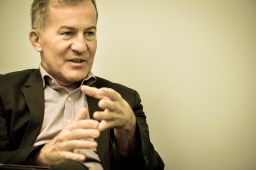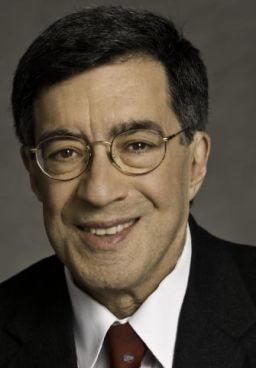What does the world think about America’s tumultuous 2020 election? CNN Opinion asked contributors for their views on what Joe Biden’s defeat of Donald Trump could mean for their countries. The views expressed here are their own.
Jiang Xueqin: The courage of America’s democracy
In the lead-up to US Election Day, China was quiet, believing the opinion polls that showed Joe Biden would win. When initial results suggested that President Donald Trump might prevail, Chinese social media users became elated, revealing that many favored Trump. Some posted that while they had come online to watch America vote, they stayed to watch it burn. “I don’t actually care who becomes President,” one said. “I’m just waiting for the violent chaos to start.”

It’s easy to think China’s schadenfreude has revealed its anti-American streak. But millions of Chinese have studied or are studying in the US, and millions more have emigrated there.
Globalization has benefited China greatly, but it’s also led to widespread inequality and populist resentment here. Yes, Biden’s focus on soft power and international alliances is expected to lead to predictability and stability in the US-China relationship, which many believe will be good for China’s economy.
But China’s economy is increasingly benefiting only a minority, and many Chinese cheered on Trump because his confrontational policies make their elite squirm.
While China believes that the world is governed by power dynamics rather than individual personalities, the Chinese elite are hopeful that Biden’s victory will mean a reset in the US-China relationship. Chinese state media now promote Biden and Hu Xijin, editor of China’s Global Times – which had mocked American democracy as dysfunctional – retweeted a Chinese social media post that says that US and China will get along better post-Trump because Beijing is a “For-Biden City”.
The courage of America’s democracy is that its deep divisions are open for all to see. The danger of China’s dictatorship is that its internal contradictions may implode unseen.
Jiang Xueqin (@xueqinjiang) is an educator and writer based in China. He tweets at .
Alice Driver: In Mexico, high hopes for Biden
Mexicans have borne the brunt of four years of President Donald Trump’s racist insults and policies that eroded human rights. Many worried that if Trump had won reelection, his anti-democratic tendencies would set an example for regional leaders like Mexican President Andrés Manuel López Obrador (AMLO) – who said Saturday that he needed to wait until legal challenges to the vote-counting concluded before recognizing Joe Biden as the president-elect – to follow an authoritarian path.

Mexican media and social media users were quick to celebrate President-elect Joe Biden’s win, with the hashtag #MéxicoFelicitaABiden (Mexico congratulates Biden) trending on Twitter on Sunday. The hashtag did double duty as an implied criticism of AMLO for holding off on congratulating Biden.
For Mexico, a Biden presidency, with his commitment to science and human rights, represents an opportunity to work on pressing binational issues like climate change and immigration. This month, I interviewed women at the US-Mexico border seeking asylum. Some have wondered if their uterus would be removed without their consent if they risked crossing into the US. For them and many others in the region, a Biden presidency signals a definitive end to policies like immigrant family separation.
Mexicans haven’t forgotten that Biden was a part of the Obama administration, which deported more people than any other administration in US history. But Biden has promised to value and recognize the US as a nation of immigrants, providing hope for a legal path to citizenship for “dreamers” from Mexico, Central America and other countries. For that reason, they’re hopeful about a Biden administration.
Alice Driver is a Mexico-based journalist whose work focuses on migration, human rights and gender equality. She is the author of “More or Less Dead: Feminicide, Haunting, and the Ethics of Representation in Mexico.”
Maysam Behravesh: For Iran, the ball is now in Biden’s court
As polling stations prepared to open across the United States on Nov. 3, Iran’s Supreme Leader Ayatollah Ali Khamenei made a significant public speech reaffirming his defiant position toward the US. “Our [US] policy is calculated and clear, and this policy does not change with the departure and arrival of individual [presidents,]” he said.

President Donald Trump’s policy of “maximum pressure” on Iran has included ever-tightening sanctions targeting the country’s economy, and the assassination of Iran’s most influential military commander, Qasem Soleimani. Khameini’s address – noting that he expects hostility from Washington to continue regardless of who is in the White House – signaled that Tehran will keep defying US pressure and resisting possible demands from President-elect Joe Biden’s administration for concessions, such as ending Tehran’s support for regional paramilitary groups or halting its missile program.
Other Iranian leaders echoed Khameini’s tough talk as it became clear that Biden had won the presidency: “We hope that the experience of these three years has been a lesson to them that will make the next US administration follow the law and return to all its commitments,” President Hassan Rouhani said in a speech on Saturday.
Biden has said that he would rejoin the Joint Comprehensive Plan of Action (JCPOA), the multinational nuclear agreement that Trump unilaterally withdrew from in 2018, if Iran returns to strict compliance with the deal.
From Iran’s perspective, the ball is now in Biden’s court. The message from Tehran is that it expects Biden to dial back on sanctions and take steps to remedy the damage done by his predecessor’s hawkish policies. Tensions will only ease if American policy shifts from escalating pressure to reducing it.
Maysam Behravesh is a PhD Candidate in Political Science at Lund University, Sweden, and a research associate at the Netherlands Institute of International Relations (Clingendael). He served as an intelligence analyst and foreign policy advisor in Iran from 2008 to 2010.
Mikhail Fishman: Russia puts a negative spin on the Biden win
In 2016, the Russian parliament applauded Donald Trump after he was elected president. This time, there’s no applause for Joe Biden’s victory in the US presidential race. The majority of Russians have little interest in who occupies the White House and the Kremlin is not expecting the Biden administration to bring them any benefits.

Vladimir Putin made no public comment – a spokesman said Monday that the Russian leader was waiting for the official results before congratulating the winner – and prominent Russian officials presented the election as a sham. A day earlier, Konstantin Kosachev, the head of the committee on foreign affairs in Russia’s Senate, posted on Facebook that there had been no official result yet. “There is no unambiguous, unconditional and convincing winner,” he wrote. “Whoever wins won’t have the full moral right to say that all America is behind his back.”
Others also mocked the ongoing vote count. On state-controlled TV, the anchor of popular Sunday night show “Vesti Nedeli,” repeated already-debunked reports about fraudulent ballots and said that the “mayhem” left no hope for an honest vote count. Vyacheslav Volodin, the speaker of Russia’s parliament called the US elections a “staged show,” saying that Russia’s electoral system was “more open, more effective, more legitimate.” In fact, election observers say that Russia’s most recent national ballot – which approved a Constitutional change allowing Putin to run Russia until 2036 – was the most rigged vote in Russia’s history.
The times when the Kremlin intended to start afresh and on positive terms with every new US administration, Democratic or Republican, are long over. Now the American election works exclusively as a major source of schadenfreude The more authoritarian Russia’s political system becomes, the stronger its desire to portray any manifestation of democracy and transition of power as flawed to the core.
And this underscores the gulf between Russia’s government and Russian dissenters. Russia’s opposition leader Alexei Navalny – recently poisoned with a nerve agent – was quick to tweet his congratulations to President-elect Biden and Vice President-elect Kamala Harrison a free and fair election. “Woke up to check who won on Twitter,” Navalny had tweeted on Election Day. “Still unclear. Now that’s what I call elections.”
Mikhail Fishman is a Russian independent journalist and broadcaster, anchor at TV Rain network, former editor in chief of the Moscow Times and writer of The Man Who Was Too Free, an award-winning feature length documentary on Boris Nemtsov.
Pramit Pal Chaudhuri: India celebrates Harris as Modi hopes for help on climate policy
New Delhi has been counting the ways it can work with Joe Biden - and has climate high on its list. In private webinars, Indian ministers have already talked about getting the United States back into the Paris Accord and how to make it a member of Prime Minister Narendra Modi’s pet project, the International Solar Alliance.

As the Indian government focused on its plans for the new administration, Indians celebrated the fact that a woman of Indian extraction would become the vice president of the United States. Residents set off fireworks in Kamala Harris’ ancestral home and Modi congratulated her in a tweet. President-elect Biden was also embraced as a native son, with Indian newspapers resurrecting Biden’s half-serious claim in 2013 on a visit to Mumbai that he supposedly had a “great, great, great, great, great-grandfather” who worked for the British East India Company and settled in India.
While much has been made of the camaraderie between Modi and Donald Trump, leaders at this level are drawn together by common interests. Modi was quick to congratulate Biden on his “spectacular victory,” tweeting Saturday that the former vice president’s contribution to strengthening Indo-US relations “was critical and invaluable.”
The main area of uncertainty among Indian strategists is how Biden will address the challenge of an increasingly aggressive China. Skeptics believe a Biden administration would follow Barack Obama’s approach in giving Beijing leeway in an attempt to win Chinese support for trade and climate issues. Other commentators have fretted about Senator Biden’s warm relations with Pakistan.
The government’s view is closer to the school that believes Biden will represent a change in tactics rather than strategy. They are hopeful the Democrats see the outgoing administration as having overmilitarized the US response to China and will focus on coalition building and strategic partnerships – a policy that puts India in pole position.
Though nine-tenths of the bilateral relationship will remain unchanged by the change of guard in the White House, a new set of common interests will fill in the remaining one-tenth.
Pramit Pal Chaudhuri is a New Delhi-based distinguished fellow at the Ananta Aspen Centre and consulting foreign editor at the Hindustan Times.
Michael Bociurkiw: Canada has one request for Joe Biden
Canadian Prime Minister Justin Trudeau quickly discovered that diplomacy and respect for allies had no place in President Donald Trump’s world, particularly after the US President accused Trudeau of being “very dishonest and weak” following the G7 summit in 2018.

Trump was keenly aware of Trudeau’s disdain for him, and it didn’t help Canada: The White House oversaw surprise duty applications on multiple trade commodities, from steel to aluminum, and squeezed Ottawa hard in a renegotiated free trade negotiation. It also presided over the partial untangling of highly integrated supply chains between the two countries in key industrial sectors. The bilateral relationship was professional – but laden with grimaces.
Canadians prefer President-elect Joe Biden to Trump, and look at this momentous election as an opportunity to restore a sense of civility not only to our bilateral relationship, but to the world stage. It would be a turn back of the clock to a time when the most powerful nation on earth stood up for multilateral institutions, led on Canadian-backed accords ranging from climate change to nuclear control, and tried to prevent petty despots becoming regional or global-impact tyrants. A relationship where disagreements were settled by talk and not by punitive tariffs.
Yes, there will be some challenges: Biden opposes expansion of the Keystone XL pipeline, which Albertans see as key to their economic recovery. And since the results were anything but a robust repudiation of Trumpian sensibilities, Canadians would be naive to expect a repeat of the bilateral relationship under former President BarackObama.
All we ask is for a civilized relationship, where legitimate differences can be addressed and often reconciled through a combination of due process, mutual understanding and respect.
Michael Bociurkiw (@WorldAffairsPro) is a global affairs analyst and a former spokesman for the Organization for Security and Cooperation in Europe.
Zeeshan Salahuddin: Watching and waiting in Pakistan
While Democrats in the US are celebrating Joe Biden’s election victory, Pakistan is cautiously eyeing the situation, wondering what his new administration will mean for US-Pakistan relations and for the region in general.

Key areas of concern: Afghanistan, China and India.
Many in Pakistan do not know much about President-elect Biden and Pakistan tends to prefer Republicans in the White House. Pakistani Prime Minister Imran Khan and President Donald Trump have enjoyed an amicable relationship, with relations improving as both countries were involved in Afghanistan peace talks last year.
However, Pakistanis are concerned about what the US will do about its troops in Afghanistan. If Trump withdraws them before Biden takes office in January 2021, the move would leave a volatile security landscape, with government forces, Taliban fighters, militants and groups like Islamic State vying for control and power in the absence of an intra-Afghan deal. This would be a nightmare scenario for Pakistan.
Pakistan will also pay close attention to Biden’s approach to China. Pakistan has close economic ties to China and has benefited from its “Belt and Road Initiative.” Any effort by Biden to counter China’s ever-expanding influence could have major implications for Pakistan too.
Additionally, no one in Pakistan is under any illusions that a Biden administration will stop cozying up to India. India is a big part of US policies to counter China in the region, and while Biden’s approach may differ from Trump’s, the effort to be friendly with India will not.
Zeeshan Salahuddin (@zeesalahuddin) is an Islamabad-based columnist, analyst and former journalist. He heads communications and strategy at the Center for Research and Security Studies, a Pakistani think tank.
?a?la ?ztek Kalafat: In Turkey, we’ve seen this movie before
In the 1980s, Turkish politicians liked to promise that our country would become a “Little America.” The term mainly referred to the more liberal economy that Turkey has now largely achieved, but it may explain why the Turkish people (and some media outlets) have framed their views of the US election around three questions:

? What does the result mean to the value of gold and the dollar? (As if the decline of the Turkish lira is directly and solely related to who’s in the White House.)
? Will Joe Biden be as good a friend to President Recep Tayyip Erdogan as President Donald Trump has been? (Turkey’s mainstream media are concerned that Biden has called Erdogan an autocrat and fear that the President-elect is opposed to Turkey’s foreign policy.)
? Is America becoming a “Big Turkey” rather than the other way around?
Turkey has experienced a coup – or an attempt at one – nearly every decade since 1960, along with more than its share of social turmoil.. That’s why we used to use “Ah I’ve seen this movie before,” as a political catchphrase. Now we’re applying this saying to another nation – the United States. A president who questions the credibility of an election that didn’t go his way and makes all-too-familiar claims of voter fraud makes us feel like we’re watching another Turkish movie, this time remade by Hollywood.
Cagla Oztek Kalafat is an Istanbul-based visiting lecturer at Bah?e?ehir University (BAU), a professional tour guide and a former editor and reporter at a range of Turkish newspapers and magazines.
Seth J. Frantzman: What Israel wants from Biden
While Americans were voting on November 3, Israel was experiencing its first heavy winter rains. The inclement weather paired well with the stormy progress of the US vote count.

Israel’s leftists and centrists have welcomed Joe Biden’s win, but President Donald Trump’s defeat is unlikely to be welcome news for his close ally, Israeli Prime Minister Benjamin Netanyahu, and the many Israelis who thought Trump was good for Israel.
Israelis have applauded Trump for measures like moving the US embassy to Jerusalem, recognizing Israeli control of the Golan Heights and making it clear that America is Israel’s closest ally.
However, for all the adoration, Trump never spent much time in Israel and his zig-zags on foreign policy, such as his order to withdraw US troops from part of Syria in October 2019, left some wondering whether he could turn on Israel if he felt it wasn’t skipping to his beat. While Israelis broadly like Trump, they are less familiar with Joe Biden and have many more concerns closer to home.
Israel has experienced three elections in less than two years, Covid-19 lockdowns and multiple protests against Prime Minister Benjamin Netanyahu.
New peace deals between Israel, Bahrain and the United Arab Emirates are important – and the next US president must invest in those relations as key to US strategy in the Middle East. For Israelis, it’s essential that the Biden administration stands with them against Iran’s threats, deters an increasingly hostile Turkey and improves American bipartisan support for the country.
Seth J. Frantzman is a Jerusalem-based Middle East analyst, he covers the region for The Jerusalem Post and is the author of ‘After ISIS: American, Iran and the Struggle for the Middle East.’
Kate Maltby: Britain will benefit from not having to work with a loose cannon
It’s no secret that President Donald Trump has a special relationship with Britain’s own populist right. He backed Prime Minister Boris Johnson for Britain’s premiership while Johnson’s predecessor and rival, Theresa May, was still Prime Minister. Trump cheerleads for Brexit. He’s been followed adoringly around the campaign trail by Nigel Farage, the nationalist pro-Brexit campaigner whose latest political party – there have been several – was launched to oppose coronavirus lockdowns.

British followers of Johnson or Farage may tell you that Trump was Britain’s best bet, primarily because they hoped his affinity with the Brexit movement would lead to a favorable US-UK trade deal – a necessity now that Britain is transitioning out of the European Union and needs to trade independently.
But don’t be fooled. More than anything, Britain needs a US president who respects the norms of international law and diplomacy. Political staff at 10 Downing Street no doubt are breathing a sigh of relief that they no longer have to place a British cabinet minister on ‘Fox and Friends’ to get Trump’s attention.
And a US president willing to re-enter the Paris Climate Accord will win friends across Britain’s political spectrum, not just the left. The day after the US vote, May – who like Johnson is a member of Britain’s Conservative Party – tweeted her sorrow at Trump’s Paris pull-out and called for renewed US involvement on climate change. Even Johnson himself referenced a shared interest in climate change when he tweeted his congratulations to President-elect Joe Biden on Saturday. With a Biden administration, Britain will benefit from working again with a reliable partner, not a loose cannon.
Kate Maltby is a broadcaster and columnist in the United Kingdom on issues of culture and politics, and a theater critic for The Guardian newspaper. She is also completing a doctorate in Renaissance literature.
David A. Andelman: Church bells ring as France says, ‘Welcome back, America’
Bells rang across Paris at 5:45 pm on Saturday to mark the moment major US media organizations declared that Joe Biden had won enough electoral votes to become the next president of the United States.

France’s enthusiasm for American democracy has continued largely unabated since the Declaration of Independence inspired the French Revolution. But this year, there was none of the dancing on the Champs-élysées that I watched in 2008, as giddy Parisians hung from lamp posts and waved American flags when Barack Obama won the White House. Part of this was the strict curfew enforced by French police amid a second wave of the coronavirus. But part of it was that it was that France felt differently after almost four years of President Donald Trump. “There was enthusiasm for Obama and relief for Biden,” Patrice de Beer, a longtime Washington correspondent for Le Monde, told me.
Still, the fear persisted that the tectonic plates tying Europe to America may have shifted slightly, but irrevocably. French President Emmanuel Macron, who’s had a prickly relationship with Trump, but has never met President-elect Biden, tweeted, “We have a lot to do to overcome today’s challenges. Let’s work together!” Foreign Minister Jean-Yves Le Drian observed that Europe needs to build, “[a] new trans-Atlantic relationship, which is a new partnership,” adding, “We cannot go back to the status quo ante, to a kind of good old days.”
It was left to Anne Hidalgo, Paris’s first woman mayor, to summarize the feeling of many Parisians unable to take to the streets: “Welcome back America!” she enthused.
David A. Andelman, a CNN contributor and formerly CBS News correspondent in Paris, is the author of the forthcoming “A Red Line in the Sand: Diplomacy, Strategy, and the History of Wars That Could Still Happen.”
(This report has been updated to include a statement from a spokesman for Russian President Vladimir Putin)
